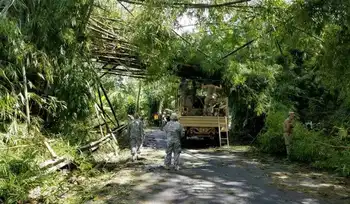New Darlington units needed: Ministry
DARLINGTON, ONTARIO - Building new nuclear units at Ontario Power GenerationÂ’s Darlington station does not signal an increase in the provinceÂ’s reliance on nuclear power, the energy ministry says.
Instead, itÂ’s simply a plan to replace aging reactors that will likely go out of service by the end of the decade.
But the Canadian Environmental Law Association argues that building new reactors is unethical because Canada still has no firm plan on how to deal with toxic nuclear waste.
The comments have been filed in closing submissions to a federal panel probing the environmental impact of the proposed new reactors.
The panel will file a report in August with the environment minister. Depending on the governmentÂ’s response, it can authorize Ontario Power Generation OPG to prepare the site for new units.
OPG still hasnÂ’t decided what kind of units it will build, nor is there a cost estimate for the multi-billion-dollar project.
The new units would supply 2,000 megawatts of generating capacity. ThatÂ’s about one-tenth of the power needed to supply the province on a moderate spring or fall day.
The energy ministryÂ’s submission says the new units are in line with the provinceÂ’s long-term energy plan and will simply hold the line on nuclear capacity, which now supplies about half the provinceÂ’s electricity.
“Far from being an expansion of nuclear as claimed by several intervenors, 2,000 megawatts of new-build would in effect result in the replacement of about half of the total capacity at the Pickering A and B stations, which are expected to be out of service post-2020,” the ministry says.
Existing reactors at Darlington and at the Bruce nuclear site will undergo mid-life refits over the next decade.
The ministry argues that demand for power will grow over the next 20 years.
Power use peaked in Ontario in 2005 and has retreated modestly since then, but the ministry argues thatÂ’s not a long-term trend.
“Some intervenors have cited reports that claim electricity usage in Ontario could be reduced dramatically over the next 10 to 20 years without offering any credible evidence,” it says.
“Such reductions would be unprecedented internationally in the absence of a falling population and a declining economy.”
The Canadian Environmental Law Association argues, however, that neither OPG nor the ministry has proven the need for the new reactors.
The ministry’s projections show no growth in power demand for the next decade, but it then “inexplicably predicts a huge increase in total electricity demand” in the 2020s, the association’s submission says.
The ministry further assumes no increase in renewable generation will occur during the decade, it says.
The association also notes that a long-term disposal solution for nuclear waste still hasnÂ’t been found.
“It is not ethical to entertain a plan to construct a facility that will produce new nuclear waste from new reactors when there is currently no permanent solution to the high level fuel waste and other radioactive waste already being produced from existing reactors,” it argues.
Related News

Japan to host one of world's largest biomass power plants
TOKYO - Power supplier eRex will build its largest biomass power plant to date in Japan, hoping the facility's scale will provide healthy margins and a means of skipping the government's feed-in tariff program.
The Tokyo-based electric company is in the process of selecting a location, most likely in eastern Japan. It aims to open the plant around 2024 or 2025 following a feasibility study. The facility will cost an estimated 90 billion yen ($812 million) or so, and have an output of 300 megawatts -- enough to supply about 700,000 households. ERex may work with a regional utility or other…




